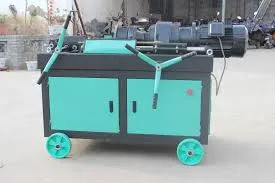
-
 Afrikaans
Afrikaans -
 Albanian
Albanian -
 Amharic
Amharic -
 Arabic
Arabic -
 Armenian
Armenian -
 Azerbaijani
Azerbaijani -
 Basque
Basque -
 Belarusian
Belarusian -
 Bengali
Bengali -
 Bosnian
Bosnian -
 Bulgarian
Bulgarian -
 Catalan
Catalan -
 Cebuano
Cebuano -
 Corsican
Corsican -
 Croatian
Croatian -
 Czech
Czech -
 Danish
Danish -
 Dutch
Dutch -
 English
English -
 Esperanto
Esperanto -
 Estonian
Estonian -
 Finnish
Finnish -
 French
French -
 Frisian
Frisian -
 Galician
Galician -
 Georgian
Georgian -
 German
German -
 Greek
Greek -
 Gujarati
Gujarati -
 Haitian Creole
Haitian Creole -
 hausa
hausa -
 hawaiian
hawaiian -
 Hebrew
Hebrew -
 Hindi
Hindi -
 Miao
Miao -
 Hungarian
Hungarian -
 Icelandic
Icelandic -
 igbo
igbo -
 Indonesian
Indonesian -
 irish
irish -
 Italian
Italian -
 Japanese
Japanese -
 Javanese
Javanese -
 Kannada
Kannada -
 kazakh
kazakh -
 Khmer
Khmer -
 Rwandese
Rwandese -
 Korean
Korean -
 Kurdish
Kurdish -
 Kyrgyz
Kyrgyz -
 Lao
Lao -
 Latin
Latin -
 Latvian
Latvian -
 Lithuanian
Lithuanian -
 Luxembourgish
Luxembourgish -
 Macedonian
Macedonian -
 Malgashi
Malgashi -
 Malay
Malay -
 Malayalam
Malayalam -
 Maltese
Maltese -
 Maori
Maori -
 Marathi
Marathi -
 Mongolian
Mongolian -
 Myanmar
Myanmar -
 Nepali
Nepali -
 Norwegian
Norwegian -
 Norwegian
Norwegian -
 Occitan
Occitan -
 Pashto
Pashto -
 Persian
Persian -
 Polish
Polish -
 Portuguese
Portuguese -
 Punjabi
Punjabi -
 Romanian
Romanian -
 Russian
Russian -
 Samoan
Samoan -
 Scottish Gaelic
Scottish Gaelic -
 Serbian
Serbian -
 Sesotho
Sesotho -
 Shona
Shona -
 Sindhi
Sindhi -
 Sinhala
Sinhala -
 Slovak
Slovak -
 Slovenian
Slovenian -
 Somali
Somali -
 Spanish
Spanish -
 Sundanese
Sundanese -
 Swahili
Swahili -
 Swedish
Swedish -
 Tagalog
Tagalog -
 Tajik
Tajik -
 Tamil
Tamil -
 Tatar
Tatar -
 Telugu
Telugu -
 Thai
Thai -
 Turkish
Turkish -
 Turkmen
Turkmen -
 Ukrainian
Ukrainian -
 Urdu
Urdu -
 Uighur
Uighur -
 Uzbek
Uzbek -
 Vietnamese
Vietnamese -
 Welsh
Welsh -
 Bantu
Bantu -
 Yiddish
Yiddish -
 Yoruba
Yoruba -
 Zulu
Zulu
roll thread machine price products
Understanding the Price Factors of Roll Thread Machines
In the world of modern manufacturing, precision and efficiency are key. Among the various types of machinery that ensure these two aspects, roll thread machines stand out for their ability to create strong, durable threads on a multitude of materials. However, as businesses consider incorporating this technology into their operations, one of the most pressing questions that arise is, What should I expect in terms of roll thread machine prices?
What is a Roll Thread Machine?
Before delving into pricing, it's essential to understand what a roll thread machine is. These machines employ a process known as thread rolling, which involves deforming the material to form threads rather than cutting them. This method not only preserves the material's integrity but also enhances the strength and fatigue resistance of the threaded components. Roll thread machines can accommodate various materials, including metals, plastics, and composites, making them versatile tools in many industries, such as automotive, aerospace, and manufacturing.
Factors Influencing Roll Thread Machine Prices
1. Type of Machine The fundamental factor affecting the price is the type of roll thread machine. There are several varieties available, including flat thread rolling machines, cylindrical thread rolling machines, and specialized machines for specific thread types. Each type has its own complexity and capabilities, which can significantly influence pricing.
2. Size and Capacity The size and capacity of the machine are crucial considerations. Larger machines that can handle bigger parts or higher volumes typically come at a higher cost. Companies must assess their production needs to determine the appropriate size, ensuring they are not overspending on capabilities they do not require.
roll thread machine price products

3. Brand and Quality Like many products, the brand plays a vital role in pricing. Established brands with a reputation for quality and reliability often charge more than lesser-known manufacturers. However, investing in a reputable machine can lead to lower operational costs and fewer breakdowns in the long run.
4. Custom Features and Automation Many modern roll thread machines come equipped with custom features such as automated feed systems, programmable controls, and advanced safety features. While these enhancements can raise the initial cost, they often lead to increased efficiency, reduced labor costs, and improved safety, justifying the investment over time.
5. Market Demand and Regional Variances Pricing can also be affected by market demand and regional factors. In areas where manufacturing is booming, prices might be higher due to increased competition for available machines. Conversely, in regions with less demand, prices may be more competitive.
6. Used vs. New Machines Companies that are budget-conscious often consider purchasing used roll thread machines. These machines can come at a significantly reduced price, but potential buyers should be cautious of the machine's condition and maintenance history. Investing in a well-maintained used machine can provide substantial savings without sacrificing quality.
Conclusion
When evaluating the purchase of a roll thread machine, it's essential to consider all the factors that contribute to its price. From the type and size of the machine to brand reputation and additional features, each element plays a role in determining the overall investment required. Understanding your production needs and budget constraints will enable you to make an informed decision, ultimately enhancing your manufacturing capabilities while balancing cost-effectiveness.
In summary, roll thread machine prices can vary widely, but with thoughtful consideration of your specific requirements and by conducting market research, you can find solutions that not only meet your operational demands but also fit within your financial plans. As the manufacturing landscape continues to evolve, investing in the right technology will undoubtedly pay dividends in productivity and product quality.
